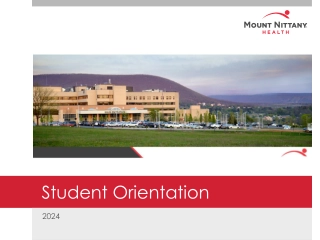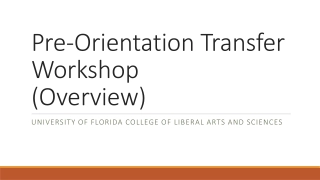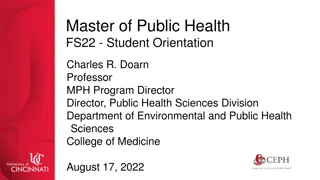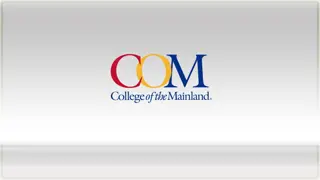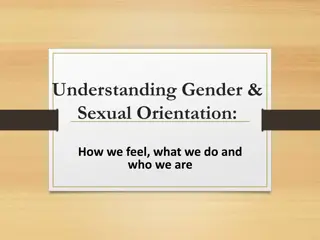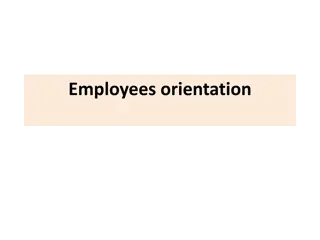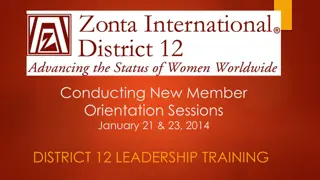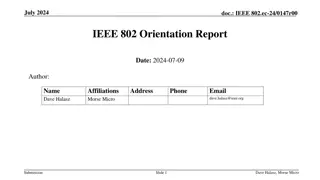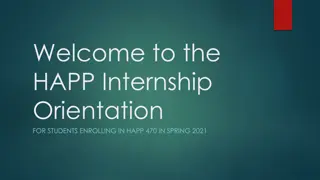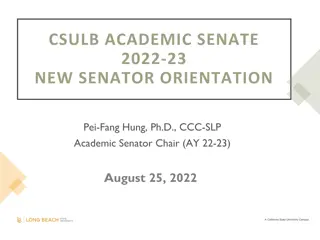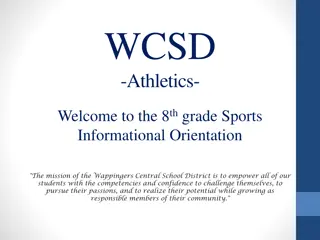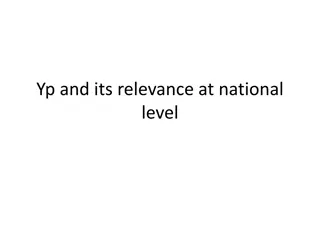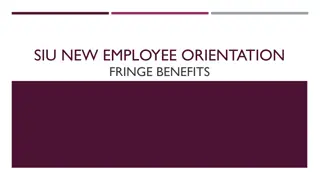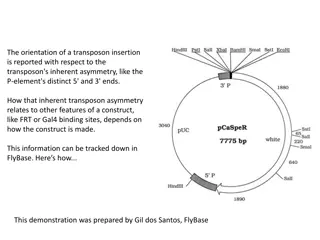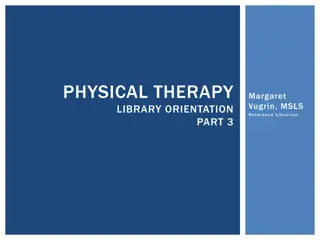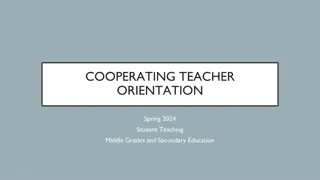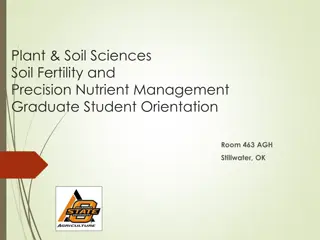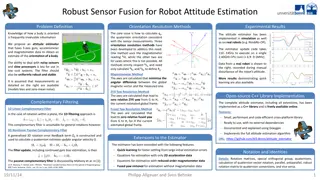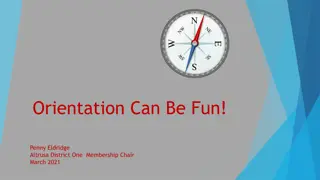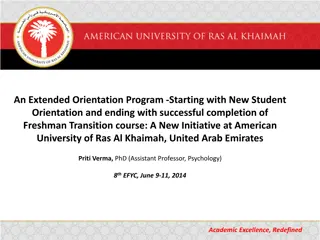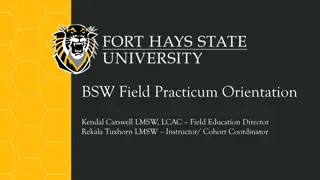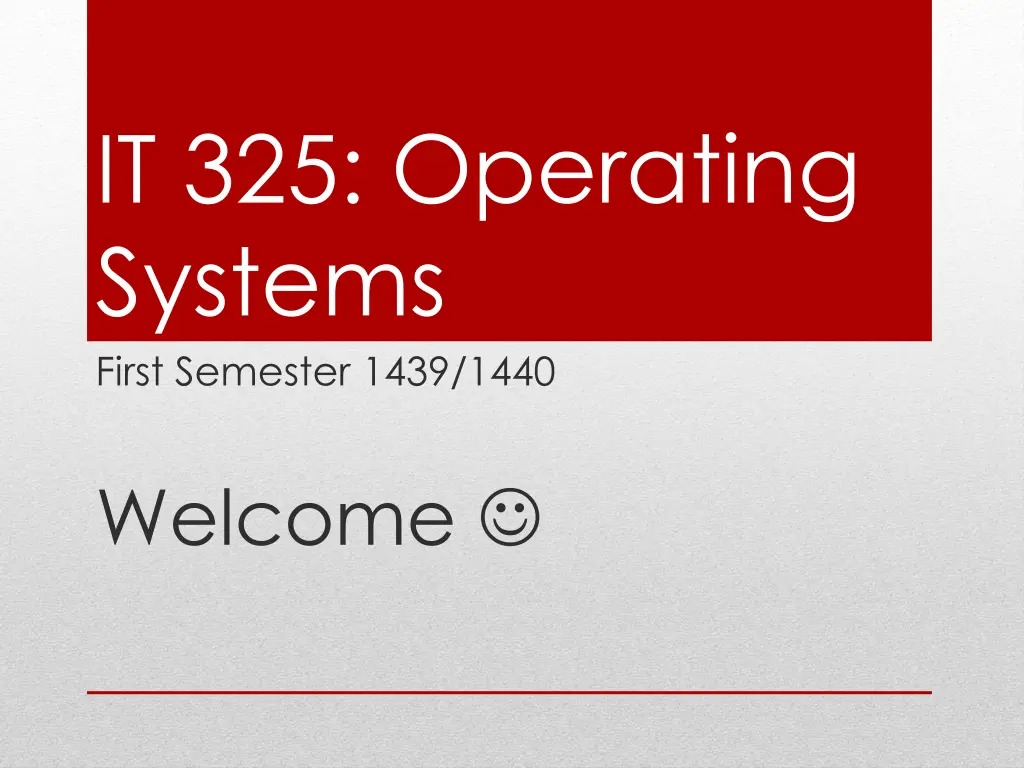
Introduction to Computer Operating Systems Course Overview
Explore the fundamentals of computer operating systems in this introductory course. Learn about operating system principles, concurrency, memory management, device management, and more. Dive into topics such as process management, memory management, and storage management. Understand the basic structure of operating systems, differentiate between types of operating systems, and develop processes and multithreading systems. Discover process scheduling algorithms, process synchronization, deadlock handling, memory management schemes, virtual memory, and disk space management. Get hands-on experience in labs and tutorials to enhance your understanding.
Download Presentation

Please find below an Image/Link to download the presentation.
The content on the website is provided AS IS for your information and personal use only. It may not be sold, licensed, or shared on other websites without obtaining consent from the author. If you encounter any issues during the download, it is possible that the publisher has removed the file from their server.
You are allowed to download the files provided on this website for personal or commercial use, subject to the condition that they are used lawfully. All files are the property of their respective owners.
The content on the website is provided AS IS for your information and personal use only. It may not be sold, licensed, or shared on other websites without obtaining consent from the author.
E N D
Presentation Transcript
IT 325: Operating Systems First Semester 1439/1440 Welcome
Course Description: This course is introduction to the basics of computer operating systems. Topics include operating system principles, concurrency, scheduling and dispatch, memory management and virtual memory, device management and file systems. At least two operating systems are compared and contrasted.
Prerequisites: IT 212 Data Structures
Text Book: Operating System Concepts 9th Edition Authors Avi Silberschatz Peter Baer Galvin Greg Gagne Supplementary books: Will be announced on the blog
Text Book | Chapters to be Covered: Chapter 1 Chapter 2 Chapter 3 Chapter 4 Chapter 5 Chapter 6 Chapter 7 Chapter 8 Chapter 9 Chapter 10 Chapter 11 Chapter 12
Course Outline: Overview Process Management 1. Processes and threads 2. Process synchronization 3. Deadlocks 4. CPU scheduling Memory Management 1. Memory management 2. Virtual memory Storage Management 1. File-system interface 2. File-system implementation 3. Secondary-storage structure
Course Outcomes: 1. Describe the basic structure of an operating system and its components. 2. Differentiate between different types of operating systems. 3. Create and develop processes and multithreading systems. 4. Compare and select various process scheduling algorithms. 5. Design and create semaphores to solve the classical problems in process synchronization. Continued
Course Outcomes | Continued: 6. Detect deadlock problems and suggest ways of dealing with them, including prevention, avoidance, detection, and recovery. 7. Differentiate among several different schemes for managing main memory, including swapping, paging, and segmentation. 8. Identify the concept of virtual memory and demand paging. 9. Explain what the "file" abstraction is and characterize several schemes for disk space allocation and free space management. 10. Compare and contrast various disk scheduling algorithms.
Lab / Tutorials: A mix of Windows and Linux environments (more details will be posted on the course blog and provided by me and your TA).
Class Blog: lms.ksu.edu.sa
Exams Policies All exams are closed book. The final exam will be comprehensive. There will be no replacement quizzes. There will be no replacement exams unless the student has a serious situation (death, Birth, etc). Thus, a dedicated committee is responsible of approving it. The replacement exam will be comprehensive.
Absencepolicy: Anyone with absence of 25% or more will be barred from entering the final exam, NO EXCEPTIONS will be made (even if the student is in her final Semester). NO medical excuses should be accepted as a way for deducting the number of absence days (25% of allowed absence in a Semester is actually there for the purpose of such health or other emergency circumstances). A medical excuse may only be used in the case that a student misses an exam (to allow for a make- up exam), however, the absence should still be counted.
Homework policy: All work is due by the date and time specified in the respective assignment. Late homework will not be accepted unless there is a valid medical or family condition with appropriate documentation submitted to the instructor.
Collaboration / Copying policy: Students are encouraged to discuss homework problems but not copy. Copying any part of other people s code, solution sets, or from any other sources is strictly prohibited and will be penalized. Students have to write their references in detail.
Grading policy: If you disagree with any homework or exam grade, submit your grievance via email to the instructor s email, documenting the merits of your case.
Grading Scheme: Two Midterm Exams (32 Marks, 16 each) Two Quizzes (13 Marks, Q1: 5 and Q2: 8 ) Lab Assignments, Projects & Evaluation Quizzes(10 Marks) Project (5 marks) Final Exam (40 Marks)
Exam Date Time Chapters Covered 12-1 pm 1, 2 QUIZ 1 Thursday 4 / OCT / 2018 24 / Muharram/ 1440 3-5 pm 3, 4, 5 MIDTERM 1 Thursday 11 / OCT / 2018 2 / Safar / 1440 3-5 pm 6, 7 MIDTERM 2 Thursday 8 / NOV / 2018 30 / Safar / 1440 12-1 pm 8, 9 QUIZ 2 Thursday 22 / NOV / 2018 14 / Rabi Al-Awwal / 1440 Thursday 13 / Dec. / 2018 8 -11 am 3-12 FINAL (6 / Rabi Al-Thani /1440)
Final Note We will try to utilize the course blog to the fullest extent possible. Please feel free to offer any other ideas and / or suggestions that you may have to make this class as useful as possible for yourself and your fellow students.
Welcome aboard learn and have fun!

